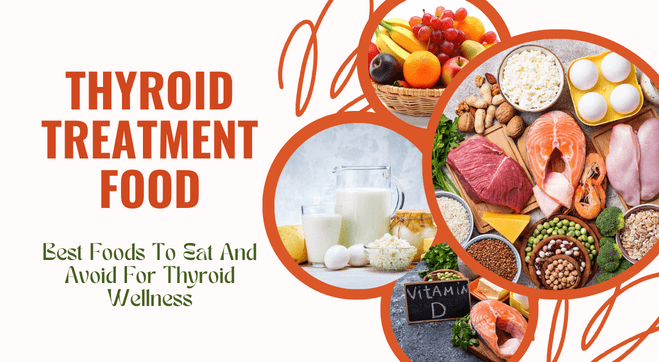The thyroid is a small, butterfly-shaped gland located in your neck. It has a crucial role in regulating the body’s metabolism and energy production mechanism. The thyroid releases certain hormones that control the speed of the metabolism, which is how fast the body converts food into energy. People with thyroid disorders may have a slow metabolism, leading to excessive fatigue.
The thyroid gland is responsible for producing vital hormones, including thyroxine (T4) and triiodothyronine (T3), crucial for the body’s overall function. For the thyroid to work well, it needs a good supply of iodine from the food you eat. When your thyroid is not working properly, your body may not function at its best.
What Can Go Wrong with the Thyroid Gland?
Typically, the thyroid gland maintains a balance of hormones crucial for metabolism. However, issues may arise. Hyperthyroidism involves excess hormone production, speeding up energy use. Hypothyroidism is when the gland produces too little hormone, slowing down energy consumption. In rare cases, thyroid cancer may develop. Understanding these conditions is vital for thyroid health.
Symptoms of Thyroid Disorders
People with thyroid disorder may experience many symptoms, such as:
- Unexplained weight loss or gain
- Intolerance to changes in temperature
- Depression or anxiety
- Forgetfulness
- Excessive fatigue
- Irregular menstrual periods
- Slow or rapid heart rate
- Dry hair
- Changes in your skin
Consult with your doctor if you’re experiencing any of these signs. Your healthcare provider may recommend a Thyroid Profile Test or TSH Blood Test to diagnose your thyroid function. TSH is a blood test that gauges the levels of thyroid-stimulating hormones. It is a diagnostic test for both hypothyroidism and hyperthyroidism. The normal range for TSH is 0.5 to 5.0 mIU/L (milli-international units per liter) 1. However, this can vary based on certain conditions, such as pregnancy and age.
Thyroid Treatment Foods: Managing Thyroid through Diet
Medication is the first line of treatment for thyroid, but your healthcare provider will also suggest following a thyroid diet plan to restore your body’s optimal function. A diet rich in thyroid-healing foods can help the thyroid gland stay active if it is not functioning well. Fortunately, nature has provided us with an array of thyroid-healing foods that can be incorporated into our diet to support and enhance thyroid function.
By prioritizing eating Thyroid Treatment Foods, you empower your body to combat thyroid dysfunction effectively.
So, let’s explore the ideal components of a well-balanced diet for thyroid patients, including what not to eat in the thyroid.
What are the Best Foods for Thyroid Patients?
Here is an expert-curated list of the best foods for thyroid patients:-
Iodine-Rich Foods
Iodine 2 is the best thyroid food to eat if you have abnormal levels of TSH. Thyroid cells need iodine to make TSH. Lack of iodine means your body can’t make enough thyroid hormones. So, include iodine-rich foods, such as seaweed, iodised salt, and seafood.
- When considering thyroid treatment food, Eggs emerge as a valuable dietary inclusion because it has a sufficient amount of iodine and selenium, which are two essential minerals for supporting thyroid function.
- Egg yolks contain approx 10% of the iodine and about 16 mcg of selenium you need for your nutritional needs. However, be mindful. Too much iodine in your diet can also be a cause of worry.
Dairy Products
There is a fair quantity of iodine in several dairy products, such as yogurt, and milk. This trace mineral is not formed by the body naturally and is necessary for the synthesis of thyroid hormones. As a result, eating these dairy products contributes to general thyroid health by providing a useful amount of iodine.
Moreover, Dairy products like yogurt and eggs, are high-quality protein sources, making them essential components of a thyroid treatment food plan. Protein is essential for supporting thyroid function, playing a pivotal role in the synthesis of thyroid hormones. Additionally, it aids in preventing muscle loss and malnutrition, contributing to overall health.
Adequate calcium intake is imperative for individuals dealing with hypothyroidism, as the condition can potentially lead to bone-related complications. Therefore, the inclusion of dairy products in the diet becomes crucial for maintaining bone health and overall well-being.
Furthermore, certain dairy products like dairy milk and non-dairy alternatives like soy milk, almond milk, and oat milk are fortified with vitamin D, a nutrient that plays a critical role in both bone health and immune system function. Individuals with thyroid disorders may be susceptible to vitamin D deficiency 3, making the consumption of dairy products a beneficial strategy to address this potential issue.
Did you know:
- Eggs are one of the best foods for thyroid patients, enriched with healthy amounts of iodine and selenium. Selenium works as an antioxidant and helps in the metabolism of thyroid hormones.
Omega-3 Fatty Acids
Fatty fish 4 walnuts, and flaxseeds are excellent sources of omega-3 fatty acids and can be best food for thyroid patients.. These food sources have anti-inflammatory properties to fight inflammation related to conditions like Hashimoto’s thyroiditis, DeQuervain’s thyroiditis, or other forms of thyroiditis. That said, they also help with lower bad cholesterol (LDL) and triglyceride levels and thus form an integral part of the thyroid diet. Including fatty fish, walnuts, and flaxseeds in your thyroid treatment food plan can aid in addressing multiple aspects of thyroid health, providing a holistic approach to managing thyroid conditions effectively
Zinc-rich foods
Zinc 5 helps your thyroid gland to secrete enough thyroid hormones. Lack of zinc in your diet can manifest as hypothyroidism. Generally, healthcare providers suggest adding nuts, seeds, whole grains, and legumes to your hypothyroidism diet plan. You may also consume zinc along with selenium to enhance thyroid function, especially if you have Hashimoto’s disease. However, it is best to consult your doctor before making any adjustments to your existing diet plan.
Vitamin D foods
Looking for thyroid treatment food? Consider adding vitamin D sources to your diet, such as fatty fish, egg yolks, and fortified dairy products, as Vitamin D deficiency 6 is closely linked with thyroid complications. You may also include mushrooms, which are rich in both vitamin D and selenium to support thyroid function.
Iron-rich foods
Iron-rich foods are also included in a diet chart for thyroid patients. Iron deficiency and thyroid disorders are often interrelated. Hypothyroidism leads to anemia, and iron deficiency 7 can affect your thyroid glands’ function. Women with hypothyroidism may experience fatigue and loss of memory due to iron deficiency. So consuming an iron-rich diet (sources include lean meat, beans, green leafy vegetables, and lentils) may help if you want to know how to control thyroid in females by food.
Fruits and vegetables
Thyroiditis is an inflammation in the thyroid due to the antibodies attacking the thyroid glands, leading to loss of thyroid function. It is an immune system disorder. So, if you want to know how to reduce thyroid by food, add colorful vegetables and fruits to your diet. Sweet potatoes, green peppers, and avocados have abundant antioxidants to combat inflammation.
Fruits that are rich in antioxidants are considered best for the thyroid. These fruits help fight inflammation in the thyroid cells and prevent damage associated with free radicals. Sources include berries, cherries, and avocados.
Bananas are saturated with flavonoids 8 and antioxidants. They also have selenium, which works as an antioxidant and helps in thyroid hormone metabolism. So yes, bananas are healthy for people with hypothyroidism and thus should be a crucial part of the thyroid diet.
What Foods Not to Eat in Thyroid?
When managing thyroid conditions, it’s advisable to be mindful of certain foods that may potentially interfere with thyroid function and are not advised to be included if you are planning to follow a thyroid treatment food plan. Here are some foods to be cautious about and, in some cases, consider limiting:
Soy-based products
Soy contains compounds like goitrogens that can hamper thyroid function and promote the growth of thyroid tissue, leading to goiter.
Processed foods
Processed foods may have unhealthy fats that lead to inflammation in thyroid cells. It is best to opt for nutrient-dense foods instead.
Excessive caffeine
Too much caffeine can affect thyroid hormone absorption. So, healthcare providers suggest maintaining your caffeine consumption if you have a thyroid disorder.
Refined sugars
Hypothyroidism and hypoglycemia are interlinked, which is low thyroid and low blood sugar. Your sugar craving simply tends to increase with hypothyroidism. However, it is best to cut down refined sugars from your diet to reduce the risk of inflammation. You can opt for natural sweeteners.
Alcohol
Binge alcohol consumption is linked to hypothyroidism as it may interfere with the body’s ability to absorb iodine from your food.
Tips to Prevent Thyroid
The best way to keep your thyroid healthy is to have enough iodine in your diet. The thyroid gland needs iodine to secrete thyroid hormones, so checking your intake is vital.
Here are six expert-suggested tips to prevent thyroid:-
- Avoid consuming processed and fast foods and have a balanced thyroid diet.
- Exercise for 20 minutes on most days of the week.
- Maintain a healthy weight
- Work on your stress levels.
- Practice yoga and meditation.
- Consume a well-balanced natural diet rich in antioxidants, vitamins, and minerals.
Conclusion
Some foods promote healthy thyroid function, while others disrupt its normal functionality. Foods that are rich in iodine are categorized as thyroid-healing foods, so healthcare providers suggest them as the best foods for thyroid patients. Processed and fast foods are generally not recommended.
Incorporating thyroid-healing foods into your daily meals is a proactive step towards supporting and nurturing your thyroid health. By embracing a well-balanced diet and adopting a holistic approach to wellness, you empower yourself to lead a life filled with vitality and energy.
It is always best to consult your healthcare provider if you’d like to know how to cure your thyroid with food. A balanced, nutrient-rich diet, combined with regular monitoring of TSH levels, is key to supporting overall thyroid health. This approach, combined with a proactive health checkup at home, contributes to your overall well-being and long-term vitality.
Disclaimer
The information listed here is strictly for educational purposes and is not intended to offer personal medical advice. Do consult your physician for any questions you may have regarding a medical condition. It’s not advised to disregard professional medical advice or delay in seeking it because of any information listed here. The Nutrition Source does not recommend or endorse any products.
Sources
Ref Links:
- Thyroid Disease- Cleveland clinic
- All About Standard TSH Ranges by Age and Life Stage- Healthline
- What’s the Best Diet for Hypothyroidism- Healthline
- Fish and the Thyroid- NLM
- Effect of zinc supplementation on thyroid hormone function- NLM
- Vitamin D Deficiency and Its Association with Thyroid Disease- NLM
- Chronic anemia and thyroid function- NLM
- Flavonoids: an overview- NLM
- Foods to eat and avoid with hyperthyroidism- Medicalnewstoday
- Dietary Intake of Vitamin D from Dairy Products- NLM









